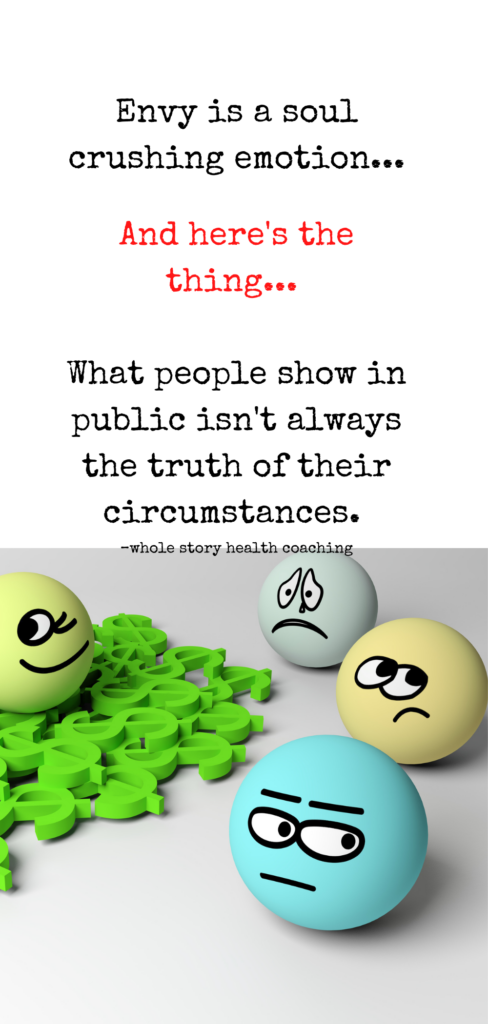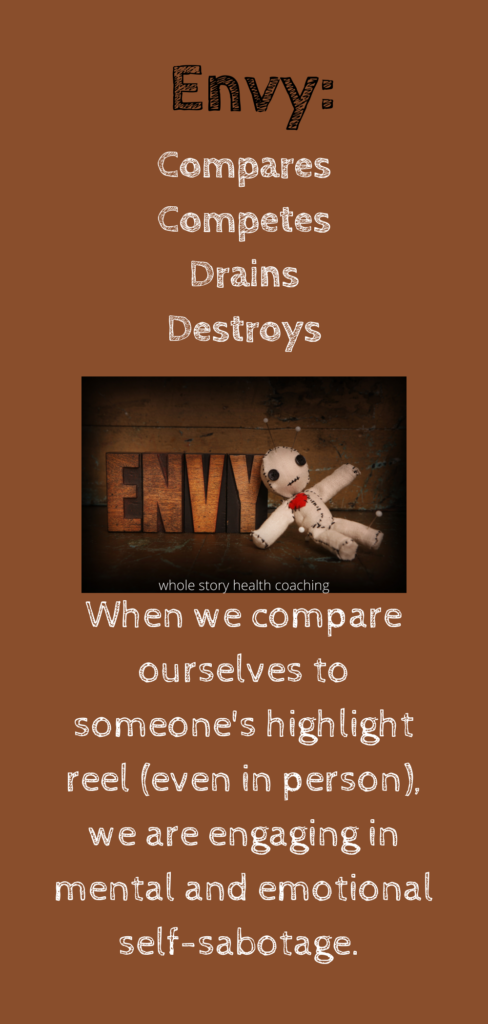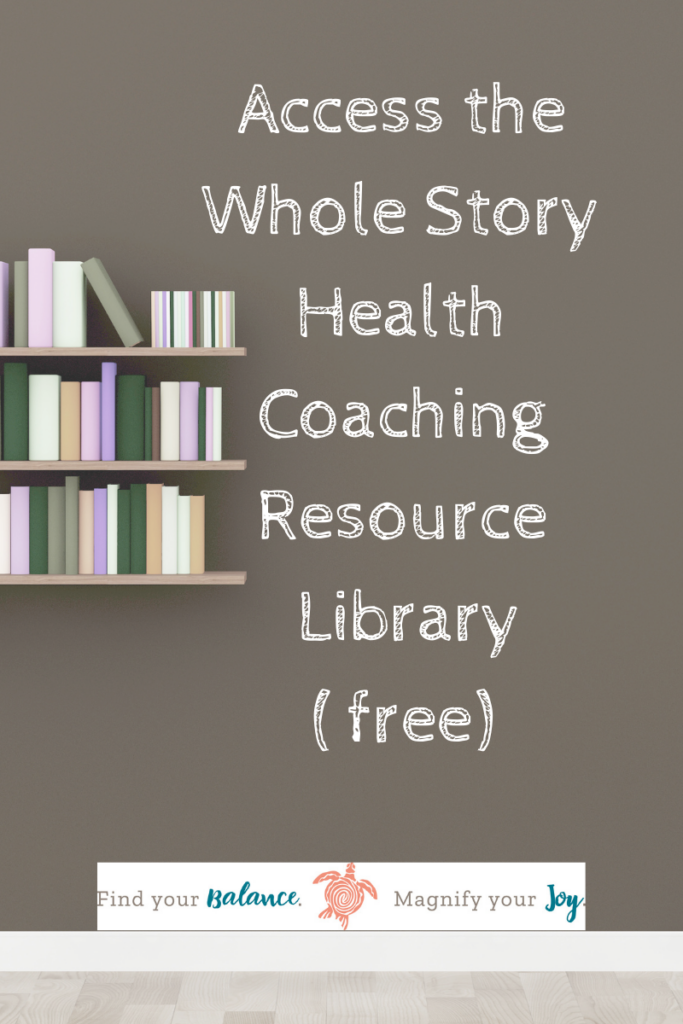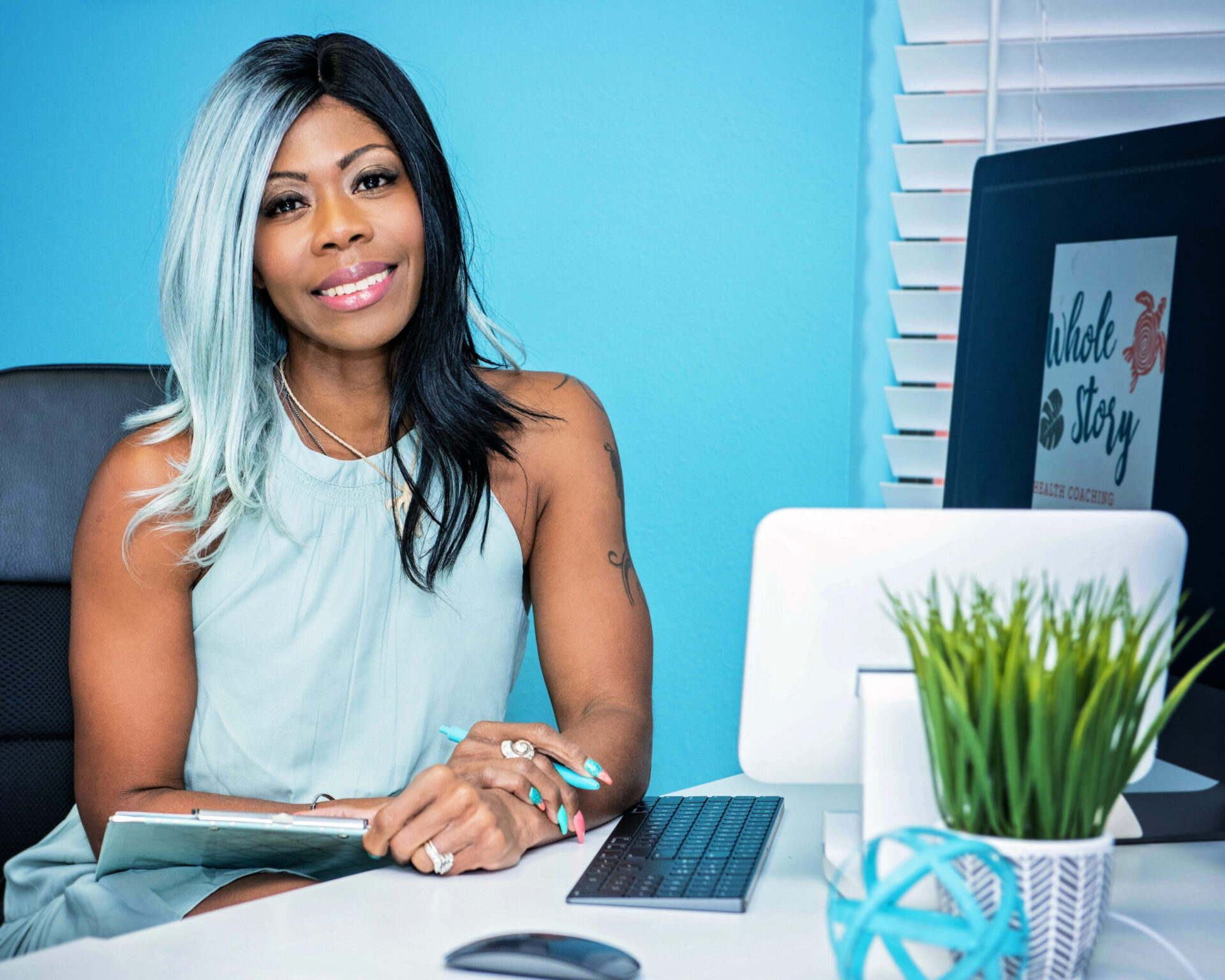There was a time in my life when comparison and envy were destroying me from the inside out. Sadly, my experiences (like many others), were more of a reflection of my innermost thoughts.
One way my envy manifested itself was through judging others. In my mind, it sounded something like this: “I bet she thinks she’s …”
But it wasn’t that she thought anything—those thoughts were all mine. They were rooted in an inability to recognize my own value and qualities.
Because I had an unstable sense of self, I often viewed myself in relation to other people—and envy.

Envy’s Effects
Envy is defined as “a feeling of discontented or resentful longing aroused by someone else’s possessions, qualities, or luck.”
The sad reality is that envy is a soul crushing emotion and what we see isn’t always the whole story—if we’re not careful, we end up envying glimpses of someone else’s lifestyle.
Listed below are just a few of the things that envy can do, if left unchecked.
Compares
Unfortunately, we can spend quite a bit of time consciously or subconsciously comparing ourselves to others. Rather than focusing on our own actual attributes, we measure ourselves according to our perceptions of those around us — or those on social media. But appearances can be deceiving. What people show in public isn’t always the truth of their circumstances. When we compare ourselves to someone’s highlight reel (even in person), we are engaging in mental and emotional self-sabotage.
Drains
Envy drains our mental and emotional energy. Our preoccupation with other people consumes our energy and the potential for our own personal growth. Instead of putting effort and momentum toward what we can control, we use ourselves up with a focus on something or someone that we honestly need to take off our radar.
Destroys
When how we process the world around us is filtered through envious thoughts, the way we behave can drive others away. Rather than being able to be present with the other person and enjoy them for who they are, envy can convince us that:
- There is a competition.
- One person is superior.
- One person is inferior.
We, essentially, lose our ability to appreciate the other person— and ourselves.
Competes
I once had a friend who would give me underhanded compliments (mostly areas in which she felt a lack) . Since she seemed to have more going for her than I did, I was confused—and hurt. Eventually, after our friendship faded, the truth came to light. She hadn’t just been making off-hand comments to my face, but also behind my back. She was competing with me, in her mind.
Friendships, the workplace, and social settings are common places where envious thoughts spur internal competitions with others. Eventually, this thought process shows up in the behavior of the envious friend or person. The results are usually quite damaging. In many cases, the other person isn’t even aware that they are a part of the competition.

How to Use Envy for Good
Once we understand what we are dealing with, it falls on us to look within ourselves to determine our personal root cause. With a mindset shift, we can learn to use envy as a teacher. Instead of allowing our focus on someone else to disturb our inner peace, we can allow it to give us insight —while helping us to craft interventions.
We can use our envy to:
Become self-aware
Though many people struggle with envy, it can be hard to recognize and even harder to admit. Self-awareness and an ability to be vulnerable with ourselves are key factors in addressing the problem.
While envy is an emotionally dangerous (and soul crushing emotion), it can also give us vital information about what’s going on in our inner world. For example, if I were more self-aware, I would have realized that I was looking at others through a lens of what I felt I lacked.
Identify what we feel we are lacking
Focusing on what others have (that’s causing our envy) can be advantageous. Often, if we are attentive, we can use it to gain insight into our own needs and wants. For instance, we can ask ourselves why we are interested in what they possess. From there, we can begin to fill in our gaps, based on who we would like to see ourselves as. Keep in mind, this is not an easy process. It may even require the help of a coach or therapist to help us get to the real root. The point is to learn what we think we’re missing and the significance that we have assigned to it.
Uncover where our dissatisfaction (with ourselves) is rooted
Finding the root of envy can be like trying to navigate a maze—and, what seems like the truth may be another dead end. However, when we persevere and are willing to be honest with ourselves, we give ourselves the opportunity to gain valuable insight and experience true growth.
As I began to confront my envy, I realized that when I was in the presence of someone that triggered my insecurities, I reacted. Though it took awhile to uncover this pattern, recognizing it allowed me to address my many layers of inner dissatisfaction. This revelation shifted my thoughts from who I wasn’t to fulfilling my potential.
Learn how our self-perception has guided our actions
Our evaluation of our worth and our self-respect hinge on the view we have of ourselves.
Interestingly, our self-perception isn’t an accurate or a complete picture. We are a combination of who we perceive ourselves to be, what others see (that we are oblivious to), and who we are when no one is around. Understanding this and merging these images will greatly increase our insight.
Because what we think about ourselves will eventually show up in how we treat ourselves (and allow others to treat us), we need to make sure that we take the necessary actions to build a positive foundation.
The Mindset Shift
When we subconsciously discount our worth, we allow treatment that reinforces this belief.
Unfortunately, there are people who will take advantage of our emotional fragility and our struggles to gain a sense of self. For these reasons alone, it is imperative that we work on building a strong inner core that isn’t based on us measuring up to someone else.
Once you increase your level of self-awareness, you increase your opportunity for growth. Flipping the script in your mind from judgment (and comparison) to admiration (of yourself) isn’t as hard as it seems. Using the knowledge from the areas above:
First, focus on what you would like to see in yourself.
Sometimes, when we have a lack of self-awareness, we tend to project qualities (good and bad) onto other people, from our own insecurities. For me, this was especially true at the gym. Years of dealing with inner and outer weight issues left me emotionally fragile. It took gaining an inner awareness to direct my path.
- What are the qualities that you want to see in yourself? Taking the time to explore the answer to this question will guide your next steps. Consider how you want to be mentally, emotionally, physically, and spiritually.
- What are the obstacles that are standing in your way?
- What are the strengths that you possess that can move you in that direction?
Focusing on these types of thoughts, instead of the others that we’ve discussed, will ensure that you build a foundation that stops envy in its tracks.
Next, create goals that accentuate who you are as a person, or you would like to be.
Decide who you want to be and how you want to show up in your life. Create goals around that decision. Keep in mind that these goals should be focused on improving your relationship with (and view) of yourself.
Lastly, create intentions and actions based on those goals.
Daily intentional living is the only way to make sure that we are staying on track. Ideally, we should form our intentions based on our values. When we are able to do this, we keep ourselves on track to be become the best person we can be, rather than becoming bitter about not being someone else.
Increasing self-awareness takes time and guidance. In addition to the free resource library, I also invite you to attend my self-guided awareness course or read my transformational workbook, Life’s a Trip. Choose one or all. No matter what, you’ll finally be able to uproot yourself and get unstuck.



